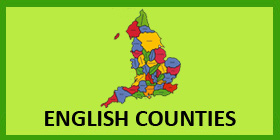




Back to the Blog Archives Index Page

FEBRUARY 2024
2 February
6 February
9 February
27 February
Friday 2 February 2024
Richard writes
I got an extremely touching email from a young lady after last week's blogs. She had been following Owlbut since she
was 12, was now 19, was educated at home and now was at Uni. Basically she thanked me and Molly for our honesty when we had spoken
on podcasts about our mental health and also the content of those blogs. She told me how much it had helped her.
However the reason I'm telling you this is that in her email she said how her father had told her that it was important
that learning was fun. This is something that Molly and I not only agree on but try to adhere to. Alongside that though is the fact
that learning, in young people, should not just be about academic subjects but also about life. I've never felt that school pays enough
attention to this.
I mentioned, in the first blog on 23 January 2024, a comment made by my old head teacher on my last time at school. He also
told my father that he never really worried about how many, or what level of, qualifications a pupil got, as long as he and his staff
had equipped them to enjoy their lives and deal with any problems they might encounter. 'I want them to believe in themselves whatever
any results may tell them', he said, 'because if they do that, then they will achieve everything they want'. I can assure everyone that
both this snippet and his belief in my courage were a great influence on the rest of my life. If you don't believe that what happens and
is said to you early in life can influence your whole life, you and I are at odds.
I often take, as an analogy for dealing with life, the Wimbledon tennis tournament held each year, fortuitously in Wimbledon.
Basically, each year, in the men's and women's singles, 256 of the top tennis players turn up trying to win a trophy. At the end of the
fortnight two of them succeed. 254 of them fail. This is what we have to cope with in life too. You will succeed far less often than you
will fail. By the way because you fail doesn't mean you are a failure. If you turned up, played the very best you could, but still lost,
so be it. Someone was, on the day, better than you.
School and the education system, in my view, try to convince everyone to succeed even, I suspect, by lowering pass-marks so
there are more successes. I don't like it. I don't like that all children must be able to read and do maths to a certain level at a certain
age. Molly and I have gone on for a long time about how every child is different and their education, their learning, should be treated as such.
This was one of the beauties I saw when working with Molly at the Forest School. The learning was child-led and while sometimes
they learned together, sometimes they led their own learning. They were left to explore, to find out, with of course adult guidance or
availability if needed. And that almost always meant they had fun.
Later, as these children get older, the learning can still be child-led but also with a little more adult guidance. They really
do though, need life skills, those which can help them assess things they fail at and work out where they want to progress.
On this point of all being different I want to say something else. There are psychoanalysts, psychiatrists, child psychologists,
Olympic psycolists, no sorry got carried away, but there are all these qualified people who can tell you how the human brain works, what all
the bits do and how to manage them. PROBLEM. Each brain is different. We all think differently and have a different capacity in parts of our
brain. Why do some people have a good memory and others don't? That's rhetorical, mainly because I can't hear you but also I am not convinced
that anyone really knows.
Some years ago I was talking to one of my sons about religion, something I normally steer very clear of because to me it seems
like organised believing, once again not accepting we are all different. We'd got round to trying to define whether I was a humanist or a
pagan and suddenly I realised, my beliefs were Richardisms, they belonged to me, formed over many years of thinking, listening and evaluating.
One of the reasons I love the time I spend with Molly, apart from what we create for you, is our chats. She too is an individual
thinker and I can take the Mollyisms I hear, mix them around with the Richardisms and quite often end up with a Mollyricism. We agree on
some things, disagree on some and instigate a new thought process on others, all I must add while having fun doing it.
There is no right answer to so many things because we do not really know. We should never take anything for granted and never,
however old, be frightened of learning from some one younger. It's actually getting more and more difficult in my case to find anyone older
so I have no choice. We should also never believe something just because someone who claims to be better than you has written it. Check it out.
All of this type of thinking we should be teaching to children as part of their learning journey. Of course give them facts, tell
them things you know but always make sure that they know they can question those things which are not facts and even in some cases, check out
what purports to be a fact, especially in our social-media driven world where everyone is an expert, an influencer, or just someone who wants
to make a statement to the world so they will be noticed. Question everything and don't be afraid to disagree with your self.
Professor Stephen Hawking wrote an amazing book called "A Brief History of Time", published in 1988. Many highly qualified people
praised it and said how brilliant it was. However in 2002 Hawking announced to a colleague 'I have changed my mind. My book is written from
the wrong perspective' and so one of the biggest-selling scientific books of all time was placed neatly in the dustbin, indeed possibly
disappearing down its own black hole. Five years after Professor Hawking's death a new book called "On the Origin of Time: Stephen Hawking's
final theory" was published. Probably many of those highly qualified people said how brilliant this was too.
My point in this whole blog was to stress how learning should be fun, follow us and it will be, how children should be shown they
do not have to succeed in everything, follow us and we will emphasise that, how they should always question and think, follow us and we will
encourage that, and how they should never be afraid to admit when they are wrong. Now, do I agree with everything I've just written; more
importantly does Molly, do you?
![]() Back to the top
Back to the top
Tuesday 6 February 2024
Richard writes
I thought this time I'd talk a bit about home education, some of the misconceptions people seem to have and some pitfalls to avoid.
As you will know, if you've followed this website, I have educated some of my own children at home over the years and have worked with others who
were doing the same. I feel, therefore, I speak from a sound base of knowledge but you will also be getting my opinions formed over more than 40
years working in education.
Firstly, never call it home schooling. It isn't. In the eyes of nearly all children a school is building and they are unaware of the
use of the word as a verb. These children will be learning, being educated, in a home. Home education, home learning, is the best way to describe it.
Secondly, don't try to pretend what is going on in your own home should, in any way, resemble what takes place in a school. Don't try
to have a set break time, playtime or lunch time. By all means have a structure but you can be far more flexible; use that asset. If your child is
particularly engrossed in something, do what a teacher, confined by the rigidity of a school timetable, can't do, and let them continue.
Thirdly, you will have heard Molly and me going on about child-led learning and this is something you can make use of if you are home
educating. It is impossible for a teacher with a class of 30 or more to allow each child to lead their learning programme. You can.
However, I just want to clear up a few points about how I see child-led learning and how I have heard others imagine it. It does not mean
that you, the facilitator of the child's learning, sit back with your feet up while your child runs riot. If anything child-led learning requires
a far more hands-on, or possibly thoughts-on, approach by the mentoring adult. This is one reason why I don't think plans for a day of learning
work for home educators and if you do use them to give some sort of structure be prepared to digress.
As an example of this thoughts-on approach, while working with Molly at her Forest School some boys asked if they could make a den.
Molly agreed and then suggested where they could find some material (and where they couldn't - there are always boundaries). As they began to make the
den and it grew in size, Molly also made suggestions as to how they could improve things. While I listened in to the boys making things, I could see
they were learning, as well as coping with the interpersonal skills of working in a team. It was a perfect example of child-led learning, watched over
and facilitated by a brilliant learning practitioner.
Another thing you need to be aware of is that learning happens all over the place. The Education Act which permits home learning only states
that a child should be in full-time education not that you need to follow any specific curriculum nor have set hours of learning. That curriculum actually
only applies to state schools, not academies or private/public schools.
During the COVID lockdown I was persuaded by a teacher friend to make some videos as I cooked some of the food which we had written about on our
English counties section. Those videos are still there by the way. We did one for most counties and while some were obvious, Cornish Pasty, Yorkshire Pudding,
Bakewell Tart, some were less so such as Bacon Floddies, Pope Lady Cakes and Plum Heavies. The recipes were easy to follow but any child using them would be
learning in many different areas. Reading the recipe, measuring the ingredients, calculating time as well as manual dexterity in mixing ingredients. It is all
learning. What is more it is practical learning with a tangible, or edible, result. Feel free to try some of them out and watch the would be Chuck Berry, Geoff
Lawson, Jackie Oliver or Ramm Stein at work. I may have got a bit mixed up with the names here although check out the cooking and you might disagree. All very NDH (got you there)
However, my point here is that if you let your child help you prepare any meal that becomes a learning experience. It is part of their education and,
done correctly, the child can find it fun.
My son who had speech dyspraxia which meant not only could he not speak very well but he couldn't read or write, found a love in numeracy. He would work
out cricket averages and just generally have fun with figures. Each year, round about January (I was a 'let's wait till the deadline' person) he used to add up,
without a calculator, my cash books, bank books for my self-employed assessment. He enjoyed doing it and no more so than when, one year, he disagreed with my total
and his figure proved to be correct.
Home educating allows you to find learning areas in all many of things, which is why I said earlier about not trying to have a timetable. Again, I repeat,
you are not a school, don't try to emulate them.
There a few more things I want to say here so I will be back on this topic on Friday. See you then.
![]() Back to the top
Back to the top
Friday 9 February 2024
Richard writes
On Tuesday I was writing about home education and I want to continue with that now. I pointed out that learning can happen anywhere
and also gave you a few ideas on ways you can incorporate learning into your daily life.
I mentioned about my own son enjoying doing my end-of-year accounts and another idea for using numeracy is when you take your child
shopping. Give them a list of say 10-12 items you buy each week and, depending on their age, send them off or go with them and let them write
down the price of those items. The following week and in subsequent ones they can do the same thing and see if the products are going up or down
in price. Make sure they understand they must compare the identical product each time.
They will learn about everyday living, inflation (you don't have to call it such) and when they get home they can think how to collate
and display the data and, again depending on their ability, work out percentages. That one hour shopping trip has become a learning lesson and they
will be ready for a career in the Office for National Statistics.
Taking your child outdoors for walks can also be a learning experience. Once we start our School of the Air we have a strand
called "Walking with Molly". Superbly named, it will be a short video where we will go walking with Molly through some part of whatever county we are in.
There will be things to find, things to observe, creatures to look out for and other things that Molly will come across. Again it is learning time.
Many years ago I spent a year working with so-called EBD children. These children had been identified as having an Emotional Behavioural
Disorder. I taught them for a year. Class size ranged from 1 to 5. age range from 9-15. The way I worked with them was, I think, very similar to home
educating. We actually taught them in a real house, making it feel a little bit homely. They were all boys, although having written that I think there
may have been one girl for a few weeks. Sometimes I felt that qualified experts, in making their diagnosis, may have forgotten that boys, indeed children of
that age, are professionally naughty. It is their calling in life and we, the adults looking after them, have the role of re-directing this naughtiness.
In my experience none of it was malicious.
Sadly, for me, one day when this happened we were all being observed by a child psychologist or some such person. After my shout at this lovely
nine-year old, working hard at his job of being naughty, she stepped in, asked the other two boys in the room to go out and play and sat young Jason down and
with me asked him why was he behaving like that and where was his inner anger. She nearly found out what happened when my inner anger pops out.
It was, and some of you may disagree with me with which I am fine, a ridiculous question to ask a nine year old. He didn't answer so she followed
this with the question "is there something in this room worrying you"? Little Jason's eyes began to sweep round the room and stopped when he spotted a telephone.
I said it was a real house. "The phone", he said. "Fine", she said, "we'll have it moved" and left. I swear Jason winked at me.
I led into that story because one day one of the other boys asked me how do we know sea water is salt. We were living near the coast. This is why last
time I said child-led is needing a more thoughts-on approach from the mentoring adult. "Aha", I said, my brain working overtime. Then I had an idea and we went and
collected two empty jam jars. I was having a one-to-one day with this boy so I was able to take him out down to the coast and with some string tied round the neck
of the jam jar we carefully collected some sea water in the jar. We then took the other jar to a nearby river and collected some river water.
Back at the house we emptied the jars into two separate saucepans and started boiling them, the saucepans not the jars. When the water had evaporated,
by the way he learned about evaporation at this point, we were left with salt in one saucepan and nothing in the other. He was amazed, fascinated, had had a great
time and we later looked at the monks up in Cumbria who had made money by selling salt way back in history.
My point is that to be educated, to learn, you do not need to spend six hours a day sat behind a desk. Learning opportunities are all around you. Use
them.
Doing a bit of self promotion here, or maybe selves promotion as Molly is as much a part of this as I, our website will help you look out for these
opportunities and provide you with even more. Don't miss it.
![]() Back to the top
Back to the top
Tuesday 27 February 2024
Richard writes
At the end of my blog on the 2nd February, scroll down and you'll find it, I mentioned the late Professor Stephen Hawking and also
said how children should never be afraid to admit when they are wrong. Being wrong does not mean you are a failure; it may just mean things have
changed or you've looked at things closer, as Professor Hawking did.
This is exactly what Molly and I have done and we have come to the conclusion that trying to set up the School of the Air and planning,
researching and indeed going on our journey through England all at the same time would be too much. Something might suffer.
We have therefore decided to postpone the start of our journey for a year and concentrate on the School of the Air. More details will
follow shortly and we will be talking about this in our March podcast which will appear in the first few days of March. We will actually be
expanding the School of the Air and adding to our pages about each county and metropolitan borough in England so you will still have some material
there.
Just a short blog this week but there's nothing wrong in being short.
![]() Back to the top
Back to the top
![]()

